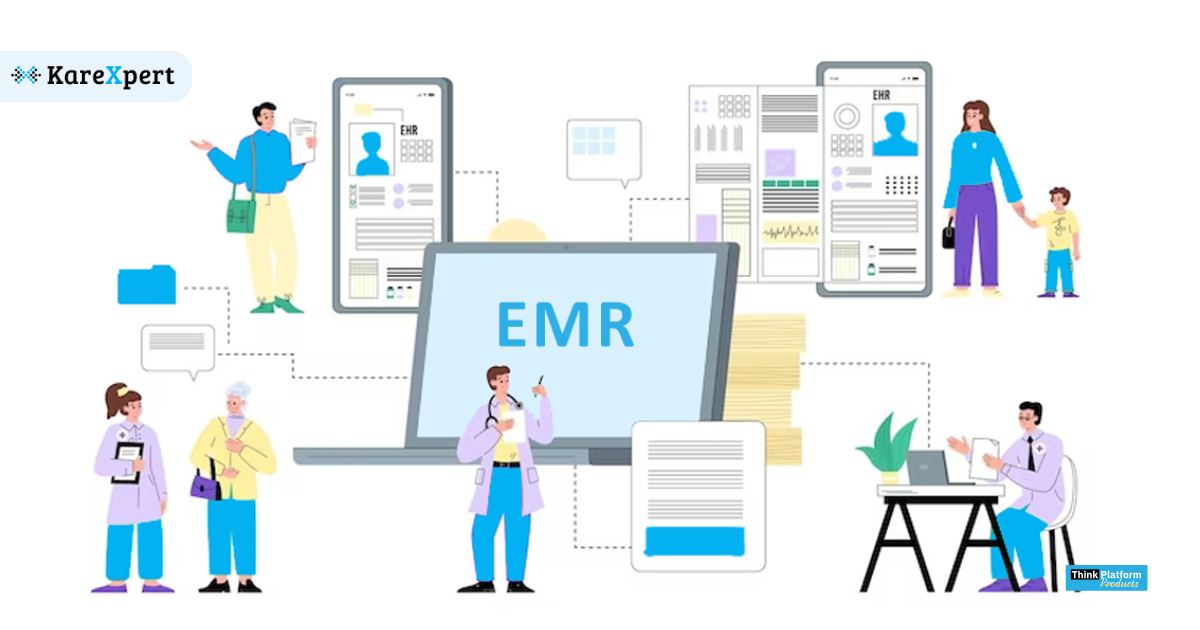The Future of EMR Software in Healthcare

Benefits of EMR Software
Before delving into the future, it is essential to understand the benefits that EMR software offers to healthcare providers:
- Enhanced efficiency: EMR software eliminates the need for paper-based records and streamlines various processes, including patient data entry, medical charting, prescription management, and appointment scheduling.
- Improved accuracy: By reducing human errors in data entry and documentation, EMR software ensures accurate and up-to-date patient information, leading to better diagnosis and treatment decisions.
- Better coordination: EMR systems enable seamless communication and information sharing among healthcare providers, ensuring coordinated care and reducing the risk of medical errors.
- Cost savings: EMR software eliminates the need for physical storage space, printing, and administrative tasks associated with paper records, resulting in significant cost savings for healthcare organizations.
- Data analytics: EMR software allows for the collection and analysis of vast amounts of patient data, facilitating clinical research, population health management, and the identification of trends and patterns.
Trends Shaping the Future of EMR Software
- Interoperability: The future of EMR software lies in interoperability, enabling different systems to exchange and use patient data seamlessly. This allows healthcare providers to access complete medical records, regardless of the EMR system used,improving patient care and reducing duplication of tests.
- Cloud-based solutions: Cloud-based EMR software offers numerous advantages, including scalability, accessibility from anywhere, data backup and security, and reduced hardware and maintenance costs. The future will witness a shift towards cloud-based EMR systems, facilitating collaboration and data sharing among healthcare providers.
- Artificial Intelligence (AI): AI has the potential to revolutionize EMR software by automating routine tasks, extracting valuable insights from large datasets, and providing decision support to clinicians. AI-powered algorithms can analyze medical records, identify patterns, predict outcomes, and suggest personalized treatment options.
- Patient engagement: The future of healthcare is patient-centric, and EMR software will play a crucial role in enhancing patient engagement. EMR systems will offer patient portals, allowing individuals to access their medical records, schedule appointments, communicate with their healthcare providers, and participate in shared decision-making.
- Mobile applications: With the increasing use of smartphones and tablets, mobile applications will become an integral part of EMR software. Mobile apps will enable healthcare providers to access patient records on the go, capture data at the point of care, and enhance communication and collaboration among care teams.
- Data security and privacy: As the adoption of EMR software increases, ensuring data security and privacy becomes paramount. Future EMR systems will incorporate robust security measures, such as encryption, access controls, and audit trails, to protect patient information from unauthorized access or breaches.
- Integration with wearables and IoT devices: The Internet of Things (IoT)and wearable devices are gaining popularity in healthcare. EMR software will integrate with these devices to capture real-time patient data, monitor health conditions, and enable remote patient monitoring, leading to proactive and personalized care.
The future of EMR software for hospitals holds great promise. Interoperability, cloud-based solutions, AI integration, patient engagement, mobile applications, data security, and integration with wearables are among the key trends shaping the industry. As technology continues to advance, EMR software will evolve to meet the growing demands of healthcare providers and patients, improving patient outcomes, streamlining operations, and driving innovation in the healthcare industry.
Cloud-based solutions are also poised to play a significant role in the future of EMR software. Cloud-based EMR systems offer scalability, flexibility, and accessibility from anywhere with an internet connection. They eliminate the need for on-site infrastructure and maintenance, reducing costs for healthcare organizations. Additionally, cloud-based solutions provide robust data backup and security measures, ensuring the safety and integrity of patient information.
Artificial Intelligence (AI) is another transformative technology that will shape the future of EMR software. AI algorithms can analyze vast amounts of patient data, identify patterns, and provide valuable insights for clinicians. They can assist in making accurate diagnoses, predicting patient outcomes, and suggesting personalized treatment options. AI-powered decision support systems integrated into EMR software can help healthcare providers make well-informed decisions quickly and efficiently.
Patient engagement is a growing focus in healthcare, and EMR software will play a crucial role in fostering active participation and collaboration between patients and healthcare providers. EMR systems will feature patient portals, allowing individuals to access their medical records, schedule appointments, communicate with their healthcare providers, and actively participate in shared decision-making processes. This increased patient engagement empowers individuals to take charge of their health and enhances the patient-provider relationship.
Integration with wearable devices and the Internet of Things (IoT) will further enhance the capabilities of EMR software. Wearables and IoT devices can collect real-time patient data, monitor health conditions, and enable remote patient monitoring. By integrating this data into EMR systems, healthcare providers can provide proactive and personalized care, monitor patient progress remotely, and intervene when necessary.
In conclusion, the future of EMR software for hospitals is promising and exciting. Interoperability, cloud-based solutions, AI integration, patient engagement, mobile applications, data security, and integration with wearables and IoT devices are all trends that will shape the industry. As technology continues to advance, EMR software will evolve to meet the growing demands of healthcare providers and patients, leading to improved patient outcomes, streamlined operations, and continued innovation in healthcare delivery.
Contact KareXpert today to know more!
Website: https://www.karexpert.com/
Email: info@karexpert.com
Phone: +91-9069113330




